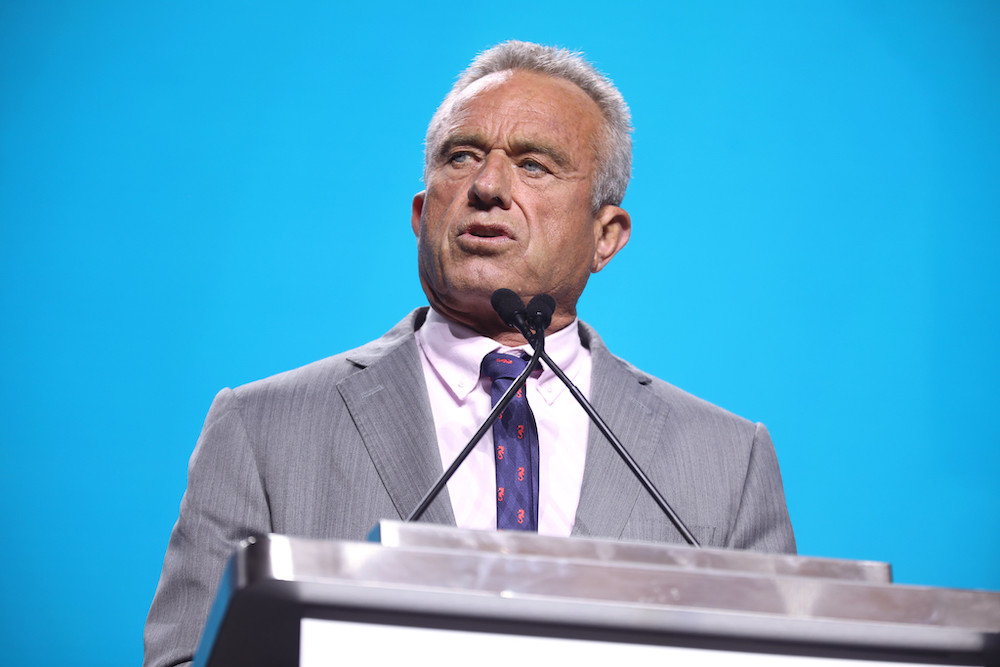
- Details
- By Elyse Wild
The National Indian Health Board is calling on Secretary of Health and Human Services Robert F. Kennedy Jr., formally requesting a tribal consultation on the restructuring of the HHS.
In an April 1 letter to Kennedy, NIHB pointed to the federal government’s trust responsibility to protect the interests of tribes and the federal agency’s legal obligation to consult with tribal nations on government actions or proposed policies that will impact tribes.
Last week, HHS announced plans to drastically restructure operations by reducing its workforce by 10,000 employees, claiming the move will save taxpayers $1.8 billion annually. The layoffs began Wednesday.
HHS plans to consolidate its 28 divisions into 15 and reduce its regional offices from 10 to five. The results, according to the announcement, will make the agency more responsive and efficient.
“The decision to move forward with this reorganization without consulting tribes impinges both the spirit and the letter of that responsibility,” writes NIHB Chairman William Smith (Valdez Native Tribe). “The health of Indian Country cannot be an afterthought — it must be a priority. Tribal sovereignty is fundamental, and the federal government must act as a true partner. Meaningful progress requires collaboration that respects the rights, knowledge, and leadership of the tribal nations.”
In a flurry of staff and funding cuts, the Department of Government Efficiency (DOGE) has slashed $6 million in grants from various HHS agencies aimed at substance-use disorder treatment in public health infrastructure and research in Indian Country, according to the letter. Cuts have also been made to staff and programming with the Centers for Disease Control’s Healthy Tribes, the Center for Indigenous Innovation and Health Equity, and the Substance Abuse and Mental Health Services Administration’s (SAMHSA) Center for Mental Health Services.
The letter specifically mentions the cancellation of CDC, SAMHSA and National Institutes of Health (NIH) grants in recent weeks, as well as threats to critical programs such as the Tribal Opioid Response Grants, Title VI Grants for Services for Native Americans, and the National Health Services Corps.
The layoffs at CDC's Healthy Tribes Program have already disrupted critical chronic disease prevention initiatives. “The firing of CDC staff is a dangerous move that will only worsen the high rates of chronic disease in Indian Country,” Abigail Echo-Hawk (Pawnee), executive vice-president of Seattle Indian Health Board and director of Urban Indian Health Institute, said in a separate statement.
During his confirmation hearings, Kennedy emphasized his commitment to supporting American Indian and Alaska Native communities, stating his intent to uphold the Department's legal, social, and moral obligations to provide health services to these populations. He also outlined plans to address staffing challenges at the Indian Health Service, enhance access to health services for American Indian and Alaska Native women, and ensure that Medicare and Medicaid programs are responsive to the needs of these communities.
In the NIHB letter, Smith writes that the Native-serving nonprofit shares a vision of a more efficient HHS, but points out that restructuring will mean substantial changes to tribal advisory committees, tribal set-aside funds, and staffing for tribal-serving programs.
“Although tribes agree with finding efficiency within HHS, reorganization must adhere to the trust and treaty obligations owed to tribes and their citizens. We request a tribal consultation to discuss the tribal implications and HHS tribal health programs that are vital to our communities,” the letter reads.
HHS has maintained a Tribal Consultation Policy since 2005, mandating meaningful and timely input from tribes on policies that have implications for Native communities.
Native News Online reached out to HHS for comment, but had not heard back when this story was published.
More Stories Like This
New Mexico Will Investigate Forced Sterilization of Native American WomenUSDA Expands Aid for Lost Farming Revenue Due to 2025 Policies
Two Feathers Native American Family Services Wins 2026 Irvine Leadership Award
Bill Would Give Federal Marshals Authority to Help Tribes Find Missing Children
Indian Health Service to Phase Out Mercury-Containing Dental Amalgam by 2027

